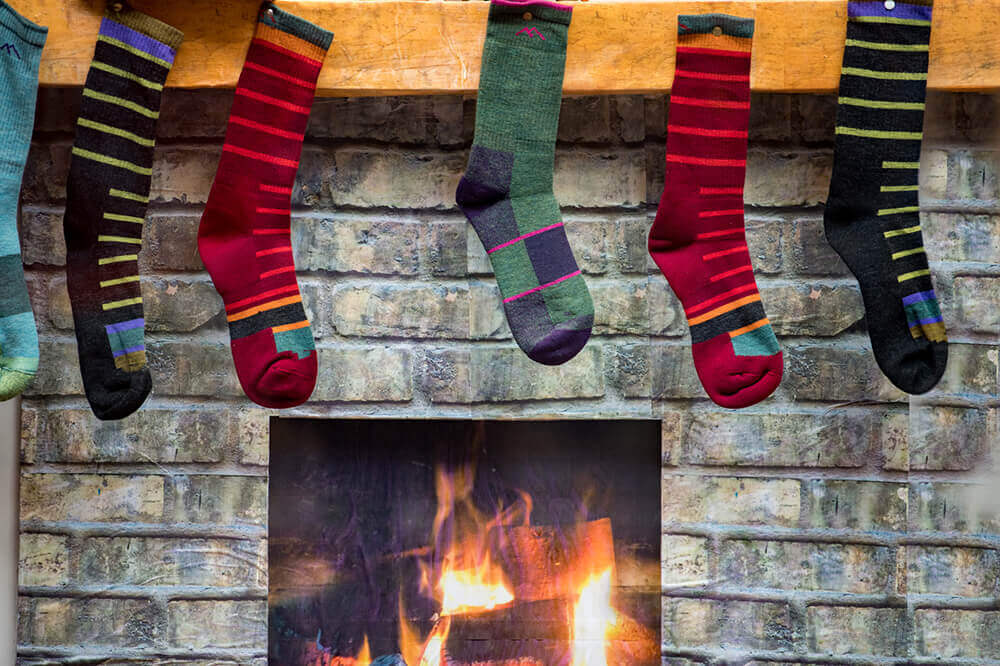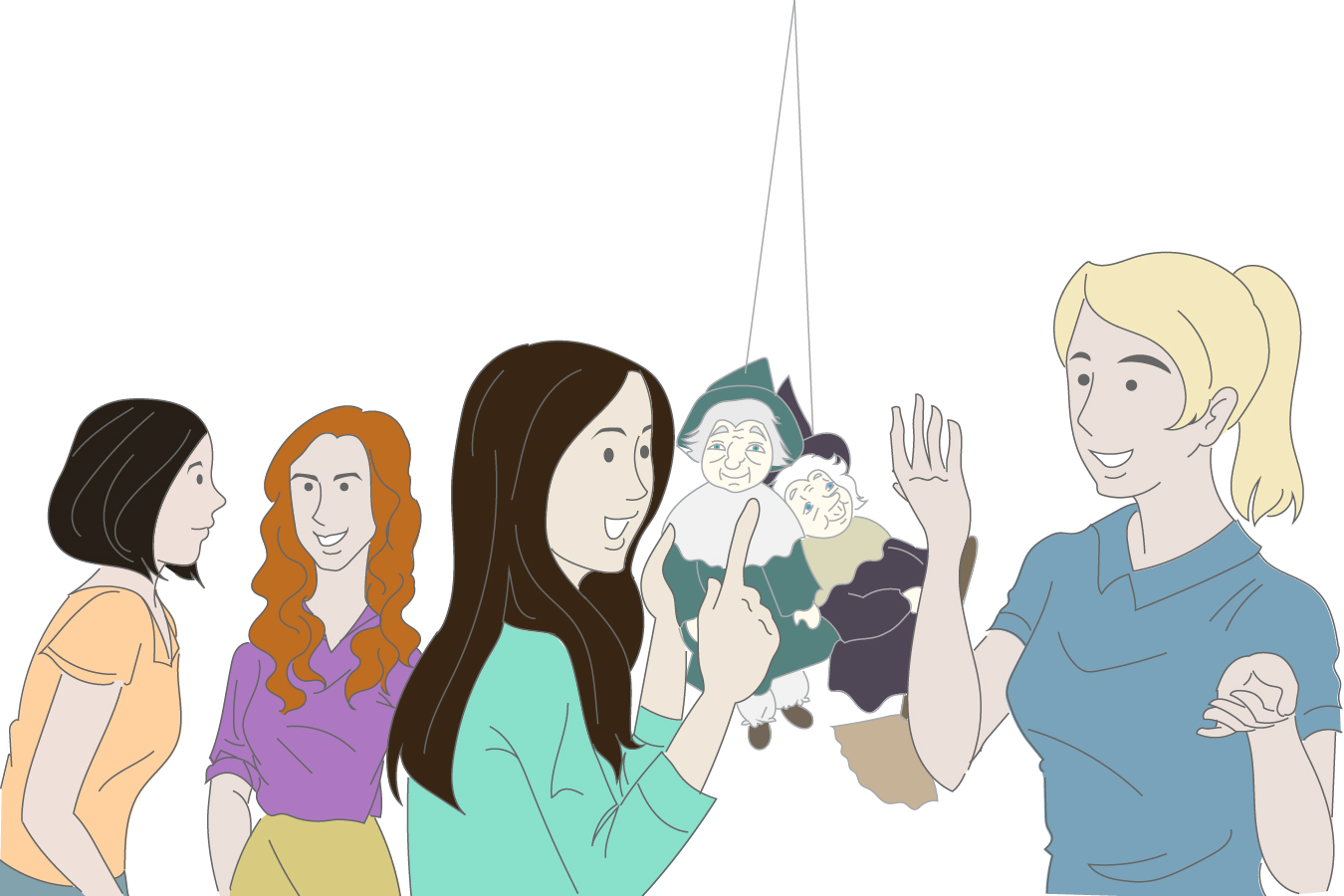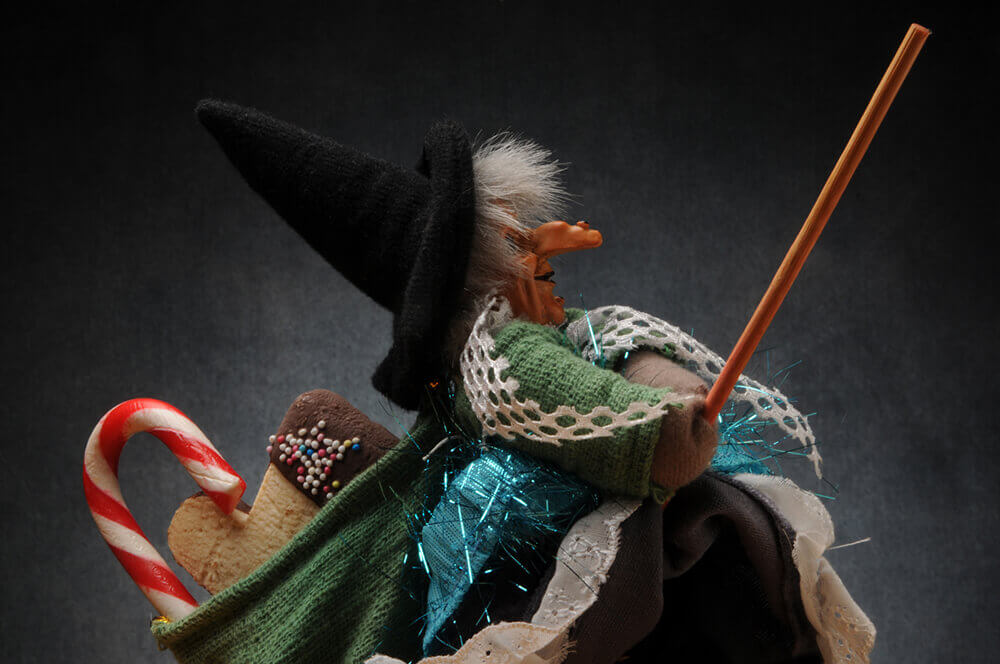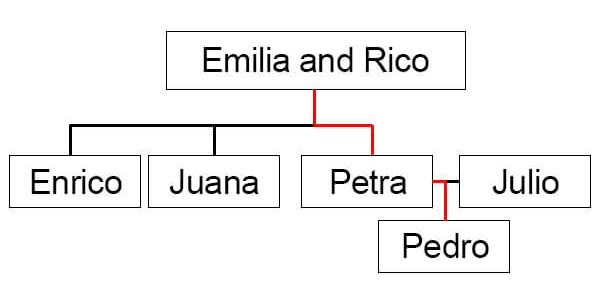INTRODUCE
Holiday decorations can differ greatly between cultures, so it’s good to know how to describe them to someone.

PRESENT
STEP A EXPRESSIONS
Go over the expressions with your tutor and choose T for true or F for false.

1. It depends on… is used to say that something changes based on a certain factor.
Black cats can be lucky or unlucky. It depends on where you live.
Q: What music do I listen to? It depends on how I feel at the moment. ( T / F )

2. If something is done year after year, it means that it’s done every year.
He celebrates Christmas with his family in Rome year after year.
Q: I change hairstyles year after year. ( T / F )

3. Something that is passed down in one’s family is given from generation to generation in a family.
The painting has been passed down in her family.
Q: Many traditional recipes are passed down in my family. ( T / F )
STEP B PRONUNCIATION
| Phrase | Example |
|---|---|
depends / duh-pendz / |
It / duh-pendz / on the day. |
UNDERSTAND
SPEAKING
It’s Kelsie, Mami, and Yuko’s last day in Italy, so they went to a souvenir shop.
 |
- Yuko:
Wow, these witch dolls are really cute! Are they for Halloween?
- Clerk:
Oh, no, those are Befana dolls. They’re actually displayed at Christmastime.
- Yuko:
Really? I’m sorry! I never would’ve guessed. In Japan, I only see witches for Halloween. See my friend with the curly hair over there? (points to Kelsie) She dresses up as one year after year.
- Clerk:
(laughs) No worries! A lot of tourists get surprised, actually. Some call her “the Christmas Witch.” This sack that she carries is filled with gifts that she gives away to children.
- Yuko:
Interesting! I guess it depends on where you grow up. Most people would think about Santa Claus when talking about Christmas.
- Clerk:
That’s true! Here in Italy, children write their wishes to La Befana and hang stockings for her gifts. Those who have been good can expect toys or sweets inside their stockings.
- Yuko:
What about the kids who have been naughty?
- Clerk:
Well, according to legend, they get coal, onions, and garlic! (laughs)
TRIVIA
While most children around the world grow up waiting for Santa Claus on Christmas Eve, Italian children believe that La Befana is the one who leaves gifts in the stockings they hang. The popular Italian Christmas icon is believed to visit on the eve of January 6, the last day of the Christmas season in Italy.

PRACTICE
STEP A EXERCISE
Complete the following conversations using the pictures, words, and expressions in the box. The form of some expressions may need to be changed.
GREECE: ships |
UKRAINE: spider webs |
1.
Tutor: How do people usually decorate for Christmas?
Student: _____ the country. People in Greece decorate their homes with _____, while people in Ukraine put _____ on their Christmas trees.

CARNEVALE: celebrated 40 days before Easter
2.
Tutor: Do Italians celebrate anything every spring?
Student: Yes, Italians celebrate the _____ 40 days before Easter _____.

3.
Tutor: Where did Pedro learn how to cook those dishes?
Student: The recipes _____.
STEP B EXERCISE
Complete the conversations using the expressions in the box and your own information. The form of some expressions may need to be changed.
1.
Tutor: What kind of clothes do you love to wear?
Student: _____ the weather. When it’s hot, I wear _____, but when it’s cold, I wear _____.
2.
Tutor: What do you do every year?
Student: _____, I _____.
3.
Tutor: What tradition does your family pass from generation to generation?
Student: The tradition of _____ _____.

CHALLENGE
Challenge 1
It’s Christmastime in Italy, and there are some beautiful decorations on display. Talk about them with your friend. Then, tell your friend about decorations in Japan.
Today's Expressions
- it depends on...
- year after year
- be passed down in one’s family
Italy |
Japan |
|---|---|
|
|
mistletoe |
shimenawa |
|
|
lights |
kadomatsu |
Challenge 2
Discuss your ideas.
 If Time
If TimeAllows
1 DECORATIONS |
2 YEARLY EVENTS |
3 PASSING THINGS DOWN |
|---|---|---|
|
1 DECORATIONS
|
2YEARLY EVENTS
|
3PASSING THINGS DOWN
|
FEEDBACK
I can discuss how holiday decorations differ from country to country.
LESSON GOAL ACHIEVEMENT
-
4
Very GoodCould complete the task with ease
-
3
GoodCould complete the task with some clarifications
-
2
FairCould complete the task with additional instructions
-
1
PoorCould somehow complete the task with difficulty
PERSONALIZED FEEDBACK
- RANGE
the ability to use a wide variety of vocabulary - ACCURACY
the ability to speak correctly - FLUENCY
the ability to speak smoothly without pauses or fillers - COHERENCE
the ability to speak logically and at length







